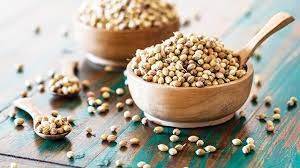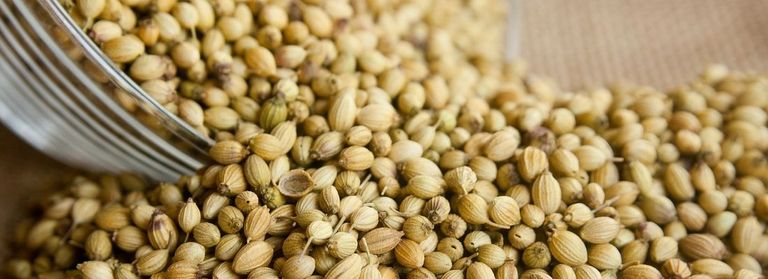
https://www.greeners.co/flora-fauna/ketumbar-rempah-penyedap-masakan-dan-pengobatan/
Heart disease has not dropped from the top ranking of causes of death in Indonesia, even in the world. Therefore, heart health should be a major concern in everyday life. There are various ways to keep the heart healthy. Apart from exercising and maintaining your diet, it turns out that coriander has benefits for the heart.
The Importance of Maintaining Heart Health
There are various types of heart disease with different causes and treatments. Heart disease has the risk of reducing the quality and quantity of human life. Basic Health Research (Riskesdas) data from the Ministry of Health also shows the incidence of heart disease is increasing from year to year. Heart health does not seem to be a priority for some Indonesians.
Though the heart is one of the most important organs in the human body system. When there is a problem with the heart, all other organs are affected. The heart functions to pump blood rich in oxygen and nutrients to other organs so that they can work normally to support human life. If the heart cannot carry out its functions properly, so will other organs so that in the end it is difficult for humans to survive.
That's why we need to maintain heart health. It's never too late to keep your heart healthy. But it would be much better if we try to pay attention to heart conditions as early as possible. As we age, the condition of the heart and other organs will experience a decrease in performance. As a result, the risk of getting various diseases is getting bigger. Therefore, we should be prepared to face that risk by paying attention to heart health from an early age.
Nutritional Content in Coriander
Maybe many don't know, efforts to maintain heart health can be started from the kitchen by routinely using coriander when preparing food. Coriander or coriander which has the Latin name Coriandrum sativum L. is generally used as a food flavoring ingredient. Various traditional medicines also use coriander in the processing of medicines.
Coriander is known to act as a diuretic to remove excess fluids and salt from the body, carminative to relieve flatulence due to gas accumulation, antioxidant to counteract the negative effects of free radicals on healthy cells, antidiabetic to prevent blood sugar problems, antimutagenic to prevent cell mutations that can trigger cancer, antimicrobials to fight bacteria, and stimulants to increase alertness in a short time.
In a study by the University of North Sumatra on fresh coriander leaves, boiled and boiled water, it was found that coriander contains iron, potassium, sodium and zinc. Quoting WebMD, cilantro also contains vitamins A, C, K, calcium, calories, protein, fat, carbohydrates, fiber, and sugar.
According to Nutrition Data, coriander is very low in saturated fat and cholesterol. Coriander is also an excellent source of vitamins A, C, E, K and B6. In addition, coriander contains thiamine, riboflavin, niacin, magnesium, copper, manganese, phosphorus, folate and pantothenic acid.
[source](
Various Benefits of Coriander for Heart Health
Coriander is generally processed and consumed in the form of leaves or seeds either extracted or not. Coriander can also be processed into oil. However, raw coriander is also known to have benefits for heart health. Here's an example:
Lowering blood sugar levels
High blood sugar levels are a risk factor for diabetes and heart disease. Coriander can activate enzyme activity that effectively helps remove sugar from the blood.Get rid of excess sodium
Because it can act as a diuretic, coriander is effective in helping to remove excess sodium or salt from the body. Excess sodium can cause high blood pressure which increases the risk of heart health problems.Lower cholesterol levels
High cholesterol levels put a person at risk for clogging of the heart arteries leading to a heart attack. The nutritional content of coriander is said to be able to lower cholesterol levels so that the risk of heart attack also goes down.Maintain blood pressure
Related to the previous points, coriander is also useful for maintaining blood pressure at a normal level. High blood pressure is linked to various health problems, including heart disease.
Tips for Maintaining Heart Health
You can start maintaining heart health in the easiest way, namely always doing physical activity. An active lifestyle including regular exercise has been shown to lower the risk of heart and blood vessel disease and even reverse risk factors such as being overweight and high blood pressure.
others include:
Maintain a normal body weight by adopting a balanced nutritional diet and staying away from unhealthy foods that are harmful to heart health
Sleep for 7-8 hours every day
Control blood pressure
Controls cholesterol levels
Check your health regularly, especially if you have risk factors for heart disease
When Should You Have a Cardiac Medical Checkup?
There is no generally accepted standard regarding when it is best to do a heart medical check-up. But many health experts recommend that the first examination be carried out when someone is 18 years old to see the health condition of the heart. From this first examination, it can be known a person's risk factors that determine when a medical check-up should be done again and how often the check-up is.
As for people who have risk factors for heart disease such as obesity, high blood pressure, diabetes, and a history of heredity, the examination should be done as early as possible. Usually after that the patient will be advised to undergo a medical check-up every five years or more often, depending on the patient's risk factors. This also applies to people aged 35 years and over. To find out when you should have a heart examination, you should go to a doctor and consult because everyone's needs vary according to the health condition of the heart.
There are still many people who do not know the benefits of coriander water for health. Coriander is more often used as a spice in the kitchen to complement the taste of dishes. In fact, not only that. Coriander cooking water can also be used as a nutritious drink.
Coriander is a food and herb that is rich in nutrients. Not only can it be consumed directly as food or fresh vegetables, coriander can also be processed into herbs or herbal teas.
This is because in coriander water there are a variety of nutrients that are good for the health of the body, such as calcium, phosphorus, potassium, magnesium, iron, folate, as well as vitamins A, B vitamins, vitamin C, vitamin E, and vitamin K.
In addition, coriander and coriander water are also rich in antioxidant compounds, such as tocopherols, carotenoids, flavonoids, tannins, anthocyanins, lutein, zeaxanthin, and quercetine.